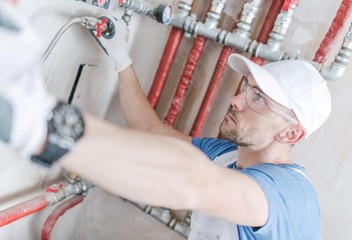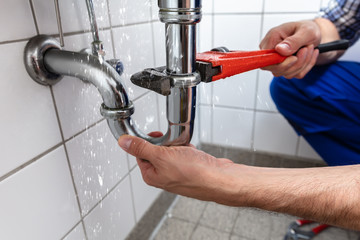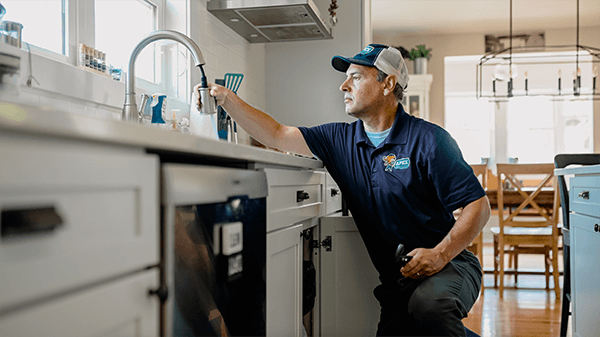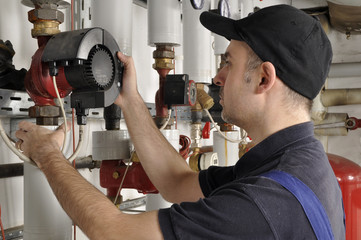What Does a Plumber Do?
Plumbing professionals are responsible for all plumbing repairs, installations, and maintenance. They must troubleshoot and repair broken or malfunctioning pipe systems, fittings, valves, and fixtures. They also analyze plumbing emergencies and repair them as necessary. Plumbers also unclog pipes and can maintain septic systems. Plumbing jobs range in size, from installing large water lines for buildings to small ones that can serve a refrigerator. Plumbers can be found in businesses, homes, and factories.

As a homeowner, you should always check the quality of a plumber’s work before hiring one. Expert plumbers won’t cause you any problems for weeks or months, while amateur plumbers are likely to make a mess. Plumbers can be categorized into two main types, commercial and residential. Commercial plumbers deal with large commercial plumbing projects, such as commercial buildings, and residential plumbers specialize in plumbing for home use. They get training and experience by working for a residential client and gain experience under an experienced plumber before getting their first commercial plumbing job.
Plumbing careers are incredibly rewarding and lucrative. A plumber’s salary is well above average. These jobs require specialized training and experience. Some jurisdictions even require plumbers to have a license to practice. Once they have earned their license, plumbers usually use soldering, compression, threaded, or push-fit fittings to join pipes. A plumber also ensures that all plumbing systems meet building regulations and safety standards.
Most plumbers work in a home or business, performing plumbing jobs in homes, offices, and factories. Plumbers often face hazards and bad weather because they work in tight spaces. Although plumbers typically have full-time jobs, they may also work on evenings and weekends. Overtime is also common, and plumbers must be available to respond to emergencies. They must be physically fit to work in the plumbing field. You can join a union to bargain for your wages, which can greatly benefit the plumber.
The word “plumber” originates from the Roman Empire, and the word plumbum means “lead.” Lead was widely used in ancient times, and the Latin word for lead has given this profession its modern name. The term plumber was also used in medieval times to refer to anyone who worked with lead. Plumbing jobs include water supply, drainage, and sewage treatment.
Plumbing is also vital in health care, allowing patients to wash their hands with clean water. The World Health Organization has recognized plumbers as frontline health workers. The plumbing systems they design help create a healthy environment for patients, enabling them to practice proper hygiene and sanitize operating rooms. Without clean water, sustainable health is impossible. This profession is one of the most important jobs in the world. There are many jobs for plumbers and plenty of opportunities for you to choose from.
While plumbers can work on various plumbing projects, home and business maintenance and repairs are the most common roles. Plumbing work can range from unclogging toilets to fixing burst pipes. Even minor repairs can be a plumbing emergency. Plumbers often undergo an apprenticeship program to install common plumbing fixtures. But even if the plumbing job isn’t as lucrative as you’d like, it’s still worth pursuing if you have a knack for solving problems.
Depending on the plumbing job you want, there are many different types of plumbers. Some plumbers specialize in a single area, such as home remodeling, while others prefer to work for larger companies. Large buildings often employ plumbing staff, including hospitals, schools, colleges, airports, and municipalities. Plumbing is also needed on motor vehicles, large airplanes, and yachts. There are even plumbers in the military. However, you might need to have prior experience in the military to be eligible for the position.
The most common route to becoming a plumber is attending an apprenticeship program. Apprenticeship programs are sponsored by companies, unions, and other professional organizations. These programs typically last four or five years and require a combination of on-the-job training and classroom study. Apprentices can earn a journeyman license after completing an apprenticeship program. Once they’ve gained enough experience and completed additional courses, they can become master plumbers. Licensed plumbers are required by state law to practice.




